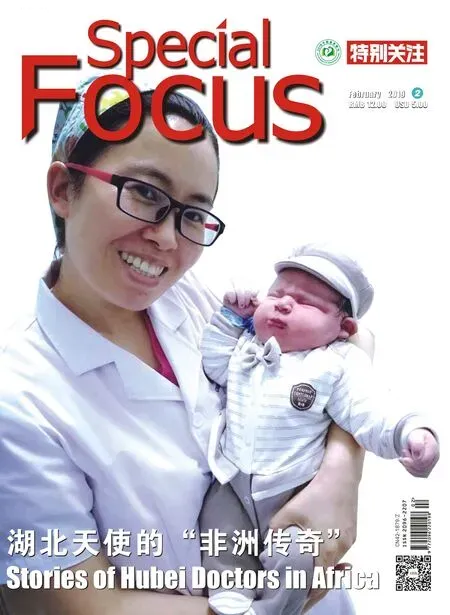Understanding Chinese Characters: 安
By Zou Xinsheng
Great rejuvenation of the Chinese nation has been a journey into a real Utopia, where the splendid Chinese culture has contributed to plant faith in the people who are exploring the great cause. Chinese culture, and its indigenous philosophy, plays a tremendous role in its rich language—the Chinese character安 (ān) is believed to have a particularly sophisticated brilliance.
From the structure emerges the most original and prevalent meaning of the character安 (ān) which combines two parts, i.e. the upper part is 宀 (mián), meaning “house,” and the lower part is女 (nǚ), meaning “woman.” Obviously, it is safe for a woman to stay in the home, or a woman in the house signifies the safety of a family. We can definitely conclude that the character安originates from安 全 (ānquán, safety) and radiates its sparks across a great spectrum of phrases and cultural characteristics. The famous idiom 轉(zhuǎn)危為安 (zhuǎnwēiwéiān; turn the corner, recover from adversity) is the epitome of that meaning.
The second most widespread definition of the character安 is平 靜 (píngjìng, peace and tranquility), as illustrated in Shuowen Jiezi (Origin of Chinese Characters), the first Chinese Dictionary known in history.平安 是 福(píngānshìfú, keeping well and peaceful is a blessing), the universal notion that good fortune smiles on people leading a life of peace, is deeply implanted in people’s mind, which reflects the enlightened views of Laozi, also known as The Classic of the Way and Virtue (Dao De Jing), a profound and famous book based on his philosophy of naturalness and non-action.
Opposite to “strenuous and laborious,” the character安 is defined as 安 逸 (ānyì; easy and conformable, satisfied with one’s life). 安 居 樂(lè) 業(yè) (ānjūlèyè; live a stable life and enjoy one’s work) manifests this sense. As dynamic as others, the character安 can also function as a verb. One is 安置 (ānzhì; arrange, install).安家 立 業(yè) (ānjiālìyè, get married/settle down and start a career) epitomizes it. The other is安定 (āndìng, stabilize). 安 邦 定國(guó) (ānbāngdìngguó, stabilize the country) represents that meaning.
The character安 is a word of versatility, acting as an interrogative, whichprevails in classical Chinese, meaning “where, how.” It can be articulated through Chinese classic works. For instance, 沛公安在 (pèigōngānzài, “Where is the Duke of Pei?”) quoted from The History of the Han Dynasty. 皮之 不 存,毛 將 安 附 (pízhībùcún, máojiāngānfù, “How can fur get attached without skin?”) is an example quoted from The Spring and Autumn Annuals.
There is an ingrained belief that the Chinese concept of 安 is the cornerstone for the prosperity of every household—this character exerts an impressive impact on the mindsets of Chinese people. The Chinese, advocates for peace and harmony, have been praying for safety and peace for thousands of years. It is not until such a culture is popular in the global community that the sunshine of peace will illuminate people’s faces throughout the world.

